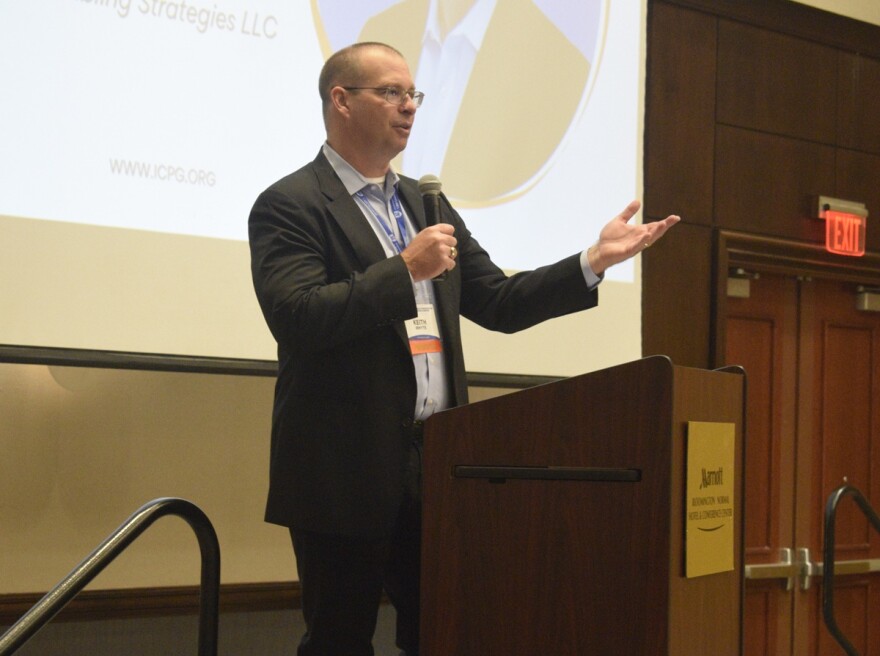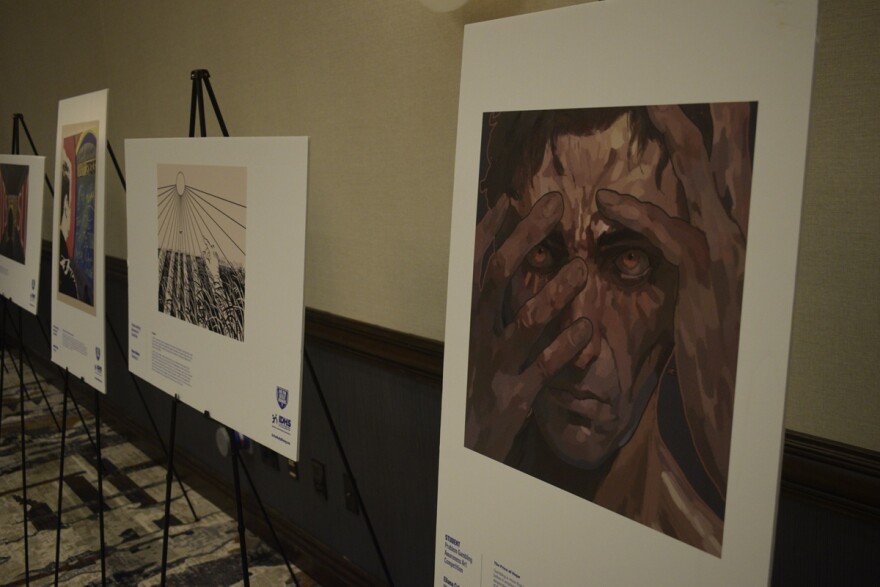Counselors and other addiction advocates from across Illinois gathered in Normal on Thursday to explore ways to reduce the harms caused by gambling.
Dave Wohl is executive director of the Illinois Council on Problem Gambling [ICPG], the nonprofit hosting the conference at the Marriott Hotel and Conference Center.
Wohl said the council is neutral on gambling but is opposed when it leads to addiction, noting gambling is the leading cause of suicide among all addictions.
“As with any addiction, when it starts affecting other aspects of your life, that’s when you need to talk to somebody, you need to get some help,” Wohl said in an interview on WGLT’s Sound Ideas.
The ICPG is a state-funded organization that provides training and other resources to counselors who treat addiction across the state.
Keith Whyte, president of Safer Gambling Strategies and one of the conference presenters, said gambling addictions have become more prevalent since the Supreme Court struck down state gambling bans in 2018 and made sports gambling ever-present.
“Just in the past seven years, there’s been enormous growth and its obviously causing social consequences, especially among this younger generation,” Whyte said, noting young men online are showing particularly higher levels of gambling-related harms that can go beyond financial distress.

“Most people who gamble will lose money and the longer you gamble, the most likely you are to lose, but there’s some other hidden consequences of this addiction: bankruptcy, higher rates of substance use and abuse, stress and depression and anxiety," he said.
Whyte said the rise of in-game bets in sports has greatly increased the risk of gambling problems because it's substantially increased the number of betting opportunities — with instant results — and it's led to arrests of pro athletes in two recent incidents in MLB and the NBA.
“Now sports betting in many cases looks a lot more like a slot machine where you can wager within seconds on the next event in a contest,” White said.
Whyte said sports leagues that profit off gambling should be help responsible for addressing the harms. He said the NFL is the one sports league that has tried to protect players and fans, while the other sports leagues seem more interested in simply protecting the integrity of the games.
For Illinois and the 35 other states that have legalized gambling, Whyte suggested an approach similar to what's worked in substance abuse prevention, making sure children are not exposed to gambling until they are old enough to better understand the risks.
"We need to be talking to kids at the elementary school level about Fantasy Football. Even though it seems fun and exciting it's not appropriate for you," Whyte said. "Parents should not be playing Fantasy Football with their kids, just like most parents would understand they are not going to sit down and smoke with their middle schooler."
Local governments benefit
Wohl urges local governments that collect tax money from video gambling machines to direct some of that revenue toward addiction treatment, though he said he understands why businesses and communities want the revenue.
“It benefits the community, it helps the community, keeps local business going, we just need to balance the benefits with the potential harms,” Wohl said.
Bloomington has collected nearly $1 million in proceeds from gaming terminals at 60 establishments this year. Normal has brought in about $425,000 from its 21 establishments that have gaming.
Wohl said it typically takes five to seven years for addiction problems to surface once communities start to embrace widespread video gambling.
Anyone who is having trouble with gambling addiction can call 1-800-GAMBLER.



